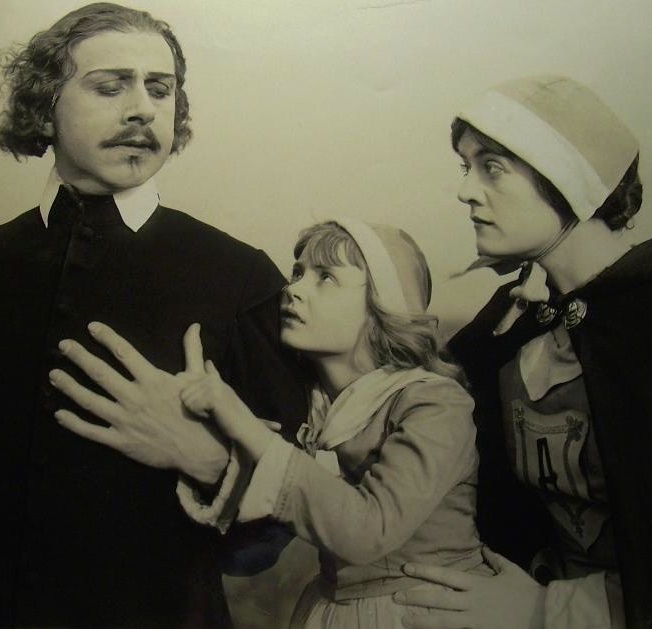
by Richard Subber | Aug 30, 2019 | Book reviews, Books, Human Nature, Tidbits
Think about your own well-being…
Here’s one for your reading list
Tribe: On Homecoming
and Belonging
by Sebastian Junger
In his Introduction, Junger says:
“Robert Frost famously wrote that home is the place where, when you have to go there, they have to take you in. The word ‘tribe’ is far harder to define, but a start might be the people you feel compelled to share the last of your food with…
Tribe is about why [treating someone like a member of your tribe] is such a rare and precious thing in modern society, and how the lack of it has affected us all. It’s about what we can learn from tribal societies about loyalty and belonging and the eternal human quest for meaning.”
It doesn’t take him too long to get right to the point, quoting from a 2012 journal article:
“The economic and marketing forces of modern society have engineered an environment…that maximize[s] consumption at the long-term cost of well-being. In effect, humans have dragged a body with a long hominid history into an overfed, malnourished, sedentary, sunlight-deficient, sleep-deprived, competitive, inequitable, and socially-isolating environment with dire consequences.”
Here’s the thing: if you read that last sentence without saying some of the words right out loud, maybe twice, with feeling and with some awareness of despair, well, maybe you should grab the CliffsNotes version and save yourself some time.
Sebastian Junger, Tribe: On Homecoming and Belonging, New York: Twelve/Hachette Book Group, 2016, xvi-xvii, 23.
* * * * * *
Book review. Copyright © Richard Carl Subber 2017 All rights reserved.
–
Book review: Lord of the Flies
Never more relevant…
by William Golding
–
My first name was rain: A dreamery of poems with 53 free verse and haiku poems,
and the rest of my poetry books are for sale on Amazon (paperback and Kindle)
and free in Kindle Unlimited, search Amazon for “Richard Carl Subber”
* * * * * *

by Richard Subber | Jan 26, 2019 | Tidbits
it’s just a movie, but…
Movie review:
Same Time, Next Year
starring Alan Alda and Ellen Burstyn
Universal Studios, 1978
Love is grand, of course.
Well, almost all the time.
“If you can’t be with the one you love, love the one you’re with” was the way Stephen Stills wrote the song in 1970.
This is an unmysterious film. George (Alda) and Doris (Burstyn) are attractive, clean-cut, smart, sentimental, successful grown-ups who love their spouses and their kids. While each is traveling alone, they meet accidentally, they unintentionally experience a one-night stand, and they decide to get together once a year for idyllic adultery, for the next 26 years.
Hey, it can happen, right?
The script includes some adult situations (like Doris having a baby in their room at the inn) and a couple almost self-conscious blippable dalliances with the F-bomb—all quite thrilling on-screen non-PC moments in 1978.
Same Time, Next Year is a see-through movie. Mostly, the script is predictable and heartwarming. The set is minimalist—almost all of the action occurs in the room at the inn. The gritty plot highlights are all too imaginable.
I like Same Time, Next Year, but I say that with reservation. I’m not a big fan of adultery, no matter how all-American it seems when George and Doris do it.
* * * * * *
Movie review. Copyright © Richard Carl Subber 2019 All rights reserved.
A poet is a “maker”
…and it doesn’t have to rhyme…
click here
–
Book review: Shawshank Redemption
A world I do not want to know…
by Stephen King
click here
–
Above all: Poems of dawn and more with 73 free verse poems,
and the rest of my poetry books are for sale on Amazon (paperback and Kindle)
and free in Kindle Unlimited, search Amazon for “Richard Carl Subber”
* * * * * *

by Richard Subber | Jan 20, 2019 | Poetry, Reviews of other poets, Tidbits
A poet all her life, of her life…
Mary Jane Oliver (1935-2019)
R. I. P.
American poet extraordinaire…
…she kept looking for the right words
Mary Oliver shared so much of her being, in compelling, provocatively calming ways.
Mary Oliver invited me to understand the goodness of sitting quietly at the edge of a pond, seeing and hearing its life, feeling connected to our world.
Mary Oliver made much of her “one wild and precious life.”
Mary Jane Oliver, requiescat in pace.
[Selection is from Mary Oliver’s “The Summer Day”]
* * * * * *
Copyright © Richard Carl Subber 2019 All rights reserved.
Old Friends (book review)
Tracy Kidder tells truth about old age…
–
Writing Rainbows: Poems for Grown-Ups with 59 free verse and haiku poems,
and the rest of my poetry books are for sale on Amazon (paperback and Kindle)
and free in Kindle Unlimited, search Amazon for “Richard Carl Subber”
* * * * * *

by Richard Subber | Dec 1, 2018 | Book reviews, Books, Human Nature
a miss on tactics,
a miss on strategy…
Book review:
Moral Tribes:
Emotion, Reason,
and the Gap
Between Us and Them
by Joshua Greene
New York, Penguin Press, 2013
422 pages
“This book is an attempt to understand morality from the ground up.” Greene’s sincere aim is a bit too breezy for me.
Reluctantly, I admit I don’t have time to read a book like Moral Tribes right now. I feel like I’m too busy sticking fingers into the terrifying political dike that is threatening to collapse in America, indeed, in the world.
I’m interested in learning more about Greene’s approach in Moral Tribes: “understanding the deep structure of moral problems as well as the differences between the problems that our brains were designed to solve and the distinctively modern problems we face today.”
I don’t have enough time or energy to indulge Greene’s apparently sincere efforts to develop “a practical philosophy that can help us solve our biggest problems.”
America’s problems—Americans’ problems—are all too clear and at least one part of the fix is all too clear: there are lots of folks who can live with and live for the hatred they feel, and they’re voting; there are lots of folks who are afraid of some of the kinds of people who are getting elected and exercising political power to the detriment of most Americans, and too many of these fearful folks aren’t voting.
I think a dominating element of a practical philosophy for America right now is “Get out the vote!”
* * * * * *
Book review. Copyright © Richard Carl Subber 2018 All rights reserved.
A poem about the right thing
…and the lesser incarnation…
“Vanity”
–
As with another eye: Poems of exactitude with 55 free verse and haiku poems,
and the rest of my poetry books are for sale on Amazon (paperback and Kindle)
and free in Kindle Unlimited, search Amazon for “Richard Carl Subber”
* * * * * *

by Richard Subber | Oct 9, 2018 | Book reviews, Books, Human Nature
slow-cooked human nature…
Book review:
The Scarlet Letter
by Nathaniel Hawthorne, London: Collins’ Clear-Type Press, 1850
368 pages
This is magnetic literature. The Scarlet Letter pulls me in, and keeps me connected to Hawthorne’s compelling exposure of slow-cooked human natures.
As I turn the pages, I put my hands on the beating hearts of Arthur Dimmesdale and Hester Prynne. Dimmesdale flails in the crass miasma of his weakness. Hester does not try to escape her torment, and she creates iconoclastic goodness in nearly everything she does. They came close to escaping their time.
The scarlet letter of Hester’s ignominy is perhaps the least destructive element of this story of love that is a transgression and a transforming secret.
There is so much emotion and too little joy in Hawthorne’s tale of 17th century lovers. Alas, the story line is viciously inescapable.
Here’s another thought: as the story is commonly known and discussed, there is hardly enough engagement with the essential role of little Pearl, the happy-go-lucky and morbidly insightful child whose experience is vital in every chapter. Pearl is a connector in every element of the tale.
I don’ think you’ll have any trouble believing this:
after publication of The Scarlet Letter, Hawthorne described it as “positively a hell-fired story, into which I found it impossible to throw any cheering light.”
* * * * * *
Book review. Copyright © Richard Carl Subber 2018 All rights reserved.
Book review: Lord of the Flies
It was never more relevant…
by William Golding
click here
Seeing far: Selected poems with 47 free verse and haiku poems,
and the rest of my poetry books are for sale on Amazon (paperback and Kindle)
and free in Kindle Unlimited, search Amazon for “Richard Carl Subber”
* * * * * *

by Richard Subber | Aug 20, 2018 | Theater and play reviews, Tidbits
A slow eruption of despair…
Review:
The Iceman Cometh
A play by Eugene O’Neill (1888-1953)
Written in 1939, first performance in 1946
Stamina is one thing you need to load up on so you can read or watch The Iceman Cometh.
Pathos, not so much. Your usual willingness to embrace pathos will be fully engaged, because Eugene O’Neill boiled this play in pathos.
The short version:
A bunch of broke-down drunks in a 1912 Greenwich Village bar sprawl in the chairs, mutually reinforcing their relentless pursuit of a maundering besotted state that creates the milieu for exercising their pipe dreams.
When their hero, the traveling salesman they call Hickey, tries to talk them into exorcizing their pipe dreams, they oh so tentatively agree…but they fail in oh so predictable ways.
In the final scene, Larry—forlorn, a lapsed anarchist—mutters “Life is too much for me, I’ll be a weak fool, looking with pity at the two sides of everything ‘til the day I die.”
That’s really The Iceman Cometh, in simplest language. It distinctly examines only one side of everything. The play makes no pretense about having redeeming qualities. It’s a slow eruption of despair. It’s a slow walk through the dark side. There is no exit except death’s door. I was glad, at the end, when I could stop watching it.
Early in his career, Marlon Brando turned down an offer to play a key role in Iceman, saying that O’Neill’s work was “ineptly written and poorly constructed.” To each his own.
I think The Iceman Cometh is a masterpiece of truth-telling. He tells some truths about life that are all too real for some people, and all too horrid contingencies for the rest.
I imagine that watching it is a lot less terrifying than living it.
* * * * * *
Copyright © Richard Carl Subber 2017 All rights reserved.
–
In other words: Poems for your eyes and ears with 64 free verse and haiku poems,
and the rest of my poetry books are for sale on Amazon (paperback and Kindle)
and free in Kindle Unlimited, search Amazon for “Richard Carl Subber”
Book review:
Shakespeare: The World as Stage
The Bard was the lucky one…
click here





